Iceland
Iceland Uncovered: Epic Landscapes and Hidden Gems
Iceland: Untamed Beauty Meets Tourist-Friendly Charm
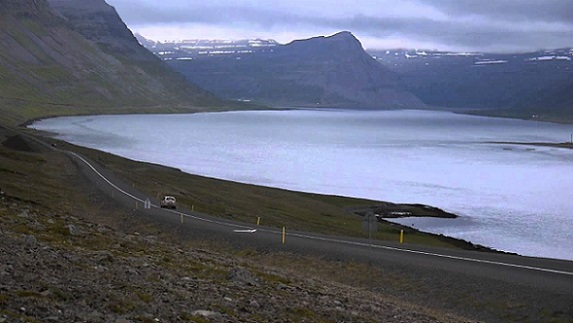
Nestled between the Arctic Circle and the North Atlantic Ocean, Iceland is a land of dramatic contrasts, where fire meets ice, silence echoes louder than cities, and nature reigns supreme.
Though it may sound like a destination for only the most intrepid explorers, Iceland has evolved into one of the world’s most accessible and unforgettable travel experiences, perfect for adventurers, culture lovers, and relaxation seekers alike.
Why Iceland? The Allure of the Extreme (Yet Surprisingly Easy)
Despite its reputation for volcanoes, glaciers, and geothermal wonders, Iceland is remarkably tourist, friendly. English is widely spoken, infrastructure is modern, and the country is safe, clean, and welcoming. Just a 5-hour flight from New York or 3 hours from London, Iceland is closer than you think, and far more diverse than its name suggests.
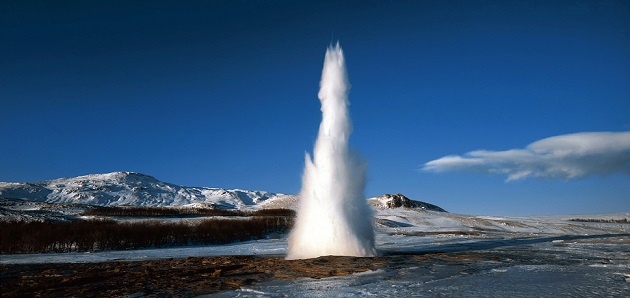
Top Tourism Features & Must-See Highlights
1. The Golden Circle – Iceland’s Classic Trio
This 300-km loop is the country’s most popular route, featuring:
- Þingvellir National Park: A UNESCO World Heritage Site where you can literally walk between two tectonic plates (North American and Eurasian).
- Geysir Geothermal Area: Home to Strokkur, a geyser that erupts every 5–10 minutes, reliable enough to time your photos!
- Gullfoss Waterfall: A thunderous two-tiered cascade that plunges into a rugged canyon.
2. The Blue Lagoon – Geothermal Luxury
Iceland’s iconic spa isn’t just Instagram-famous, it’s a genuine wellness experience. The milky-blue, mineral-rich waters (heated naturally to 37–40°C / 98–104°F) are packed with silica and algae, known for soothing skin and relaxing muscles. Pro tip: Book in advance, this place sells out!
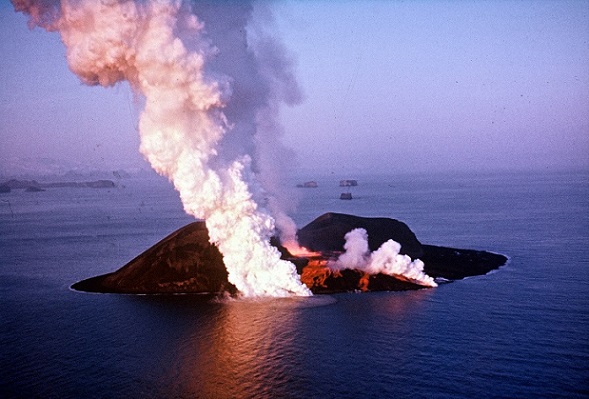
3. South Coast Wonders
Drive along Route 1 to discover:
- Seljalandsfoss & Skógafoss: Walk behind one waterfall, stand beneath the mist of another.
- Reynisfjara Black Sand Beach: Basalt columns, crashing Atlantic waves, and eerie sea stacks, just watch the sneaker waves!
- Vík í Mýrdal: Iceland’s southernmost village, perfect for cozy cafés and puffin spotting (May–August).
4. Vatnajökull National Park – Europe’s Largest Glacier
Explore ice caves (winter only), hike across glacial tongues, or take a boat tour on Jökulsárlón Glacier Lagoon, where diamond-like icebergs float out to sea.
5. The Westfjords & Snæfellsnes Peninsula
For off-the-beaten-path magic: dramatic fjords, remote hot springs, lava fields, and the mystical Snæfellsjökull volcano (famously featured in Jules Verne’s Journey to the Center of the Earth).
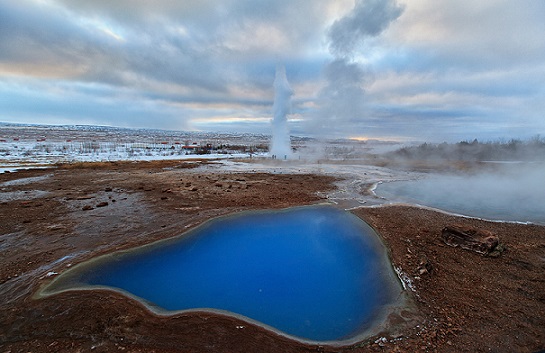
Wildlife & Adventure Activities
- Whale Watching: From Reykjavík or Húsavík (“Europe’s Whale Watching Capital”), spot humpbacks, minkes, and even orcas.
- Puffin Season: These charming seabirds nest along coastal cliffs from April to August, Látrabjarg in the Westfjords is one of the best spots.
- Northern Lights: Best viewed September–March on clear, dark nights. Download an aurora forecast app!
- Midnight Sun: In summer (June–July), the sun barely sets—perfect for 24-hour road trips.
Culinary Delights & Cultural Gems
- Foodie Finds: Try lamb stew, fresh Arctic char, skyr (Icelandic yogurt), and yes, even fermented shark (if you dare!). Reykjavík’s food scene is booming with Nordic fusion and farm-to-table dining.
- Reykjavík Vibes: Explore colorful houses, street art, and cozy bookstores. Don’t miss Hallgrímskirkja church for panoramic city views.
- Music & Arts: Iceland punches above its weight culturally, home to Björk, Sigur Rós, and countless festivals like Iceland Airwaves.
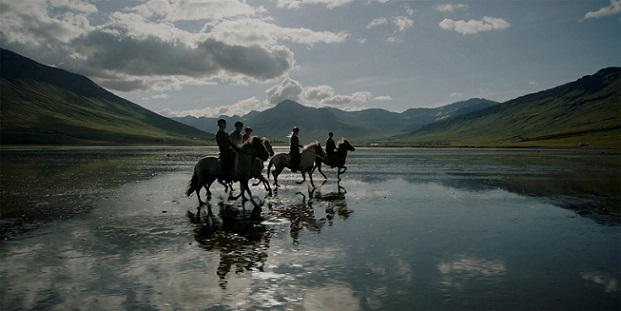
Travel Tips for a Smooth Icelandic Adventure
✅ Rent a Car: Public transport is limited outside Reykjavík. A 4x4 is essential for highland roads (F-roads) or winter travel.
✅ Pack Layers: Weather changes fast—even in summer! Waterproof jacket, thermal base layers, and sturdy boots are non-negotiable.
✅ Respect Nature: Stick to marked paths, never step on moss (it takes decades to regrow!), and follow “Leave No Trace” principles.
✅ Book Early: Popular tours (ice caves, Blue Lagoon, Northern Lights cruises) fill up months in advance.
✅ Save on Groceries: Eating out is expensive. Stock up at Bonus or Krónan supermarkets for snacks and picnic supplies.
Fun Facts That’ll Impress Your Friends
- Iceland has no mosquitoes, thanks to its cold, windy climate and lack of stagnant water.
- It’s one of the few places on Earth where you can snorkel or dive between tectonic plates (Silfra fissure in Þingvellir).
- Over 85% of Iceland’s energy comes from renewable geothermal and hydroelectric sources.
- The country has no army, just a coast guard and a strong sense of community.
- Elves (“huldufólk”) are taken seriously by some locals, road projects have been rerouted to avoid “elf rocks”!
Final Thought:
Iceland isn’t just a destination, it’s a sensory awakening. Whether you’re soaking in a geothermal lagoon under the stars, standing beneath a roaring waterfall, or chatting with a local over artisan coffee in Reykjavík, you’ll leave with more than photos. You’ll carry home a renewed sense of wonder.
So, ready to trade crowded city tours for glaciers, geysers, and the gentle gait of an Icelandic horse? Iceland is waiting, wild and warm at once.

Tectonic Plate Diving
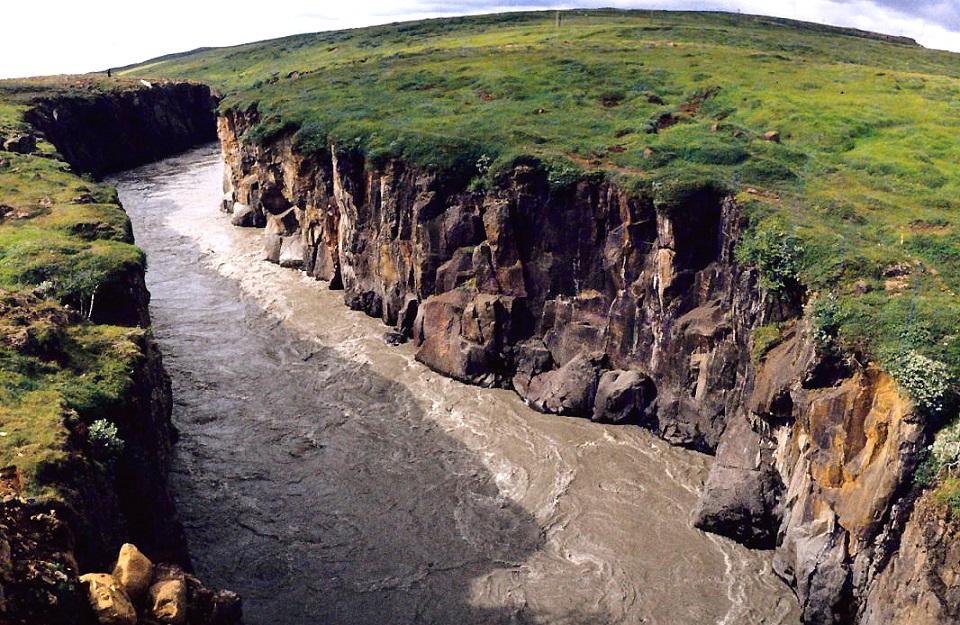
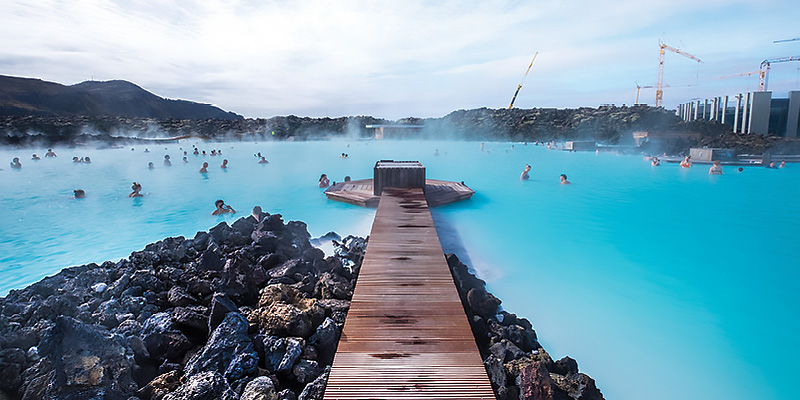
Iceland offers a one-of-a-kind and exhilarating opportunity for adventure enthusiasts seeking excitement and an adrenaline rush. This captivating destination allows you to explore the Earth's shifting plates, providing a unique experience. Imagine embarking on a thrilling journey where you can dive into the underwater world and immerse yourself in the immense power of nature.
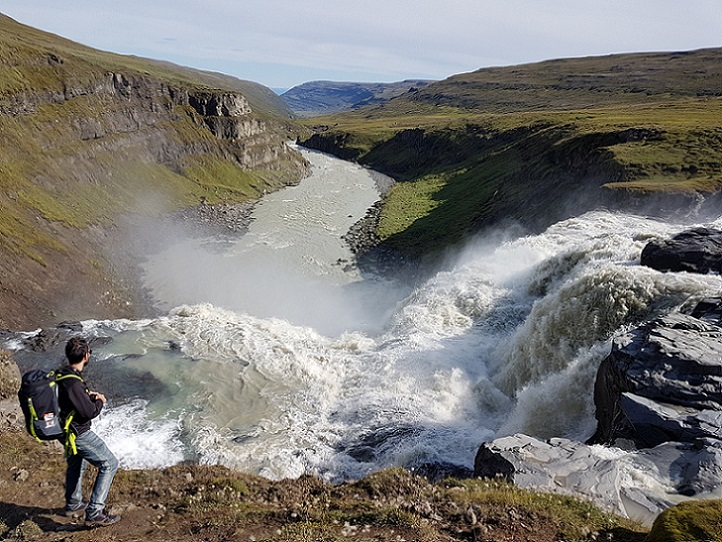
As you delve into the depths of Iceland's shifting plates, you will witness awe-inspiring landscapes and fascinating geological formations. Envision descending into the crystal-clear waters, where a vibrant marine ecosystem thrives amidst the rugged terrain. Swim alongside colorful aquatic creatures, encounter majestic animals like whales and seals, and marvel at the vibrant coral reefs that have formed over millions of years.
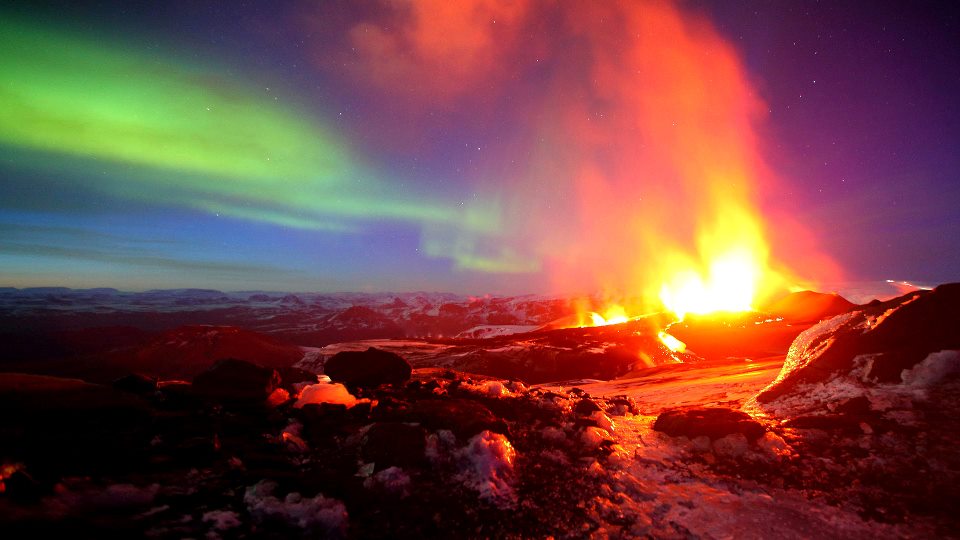
Iceland's shifting plates offer more than just an adventurous experience; they also offer a glimpse into the geological history of our planet. These plates, known as the Eurasian and North American plates, are constantly moving, creating unique geological features such as rift valleys, geysers, and hot springs. This dynamic landscape showcases the raw power of nature and provides an opportunity to witness the ongoing process of Earth's formation.
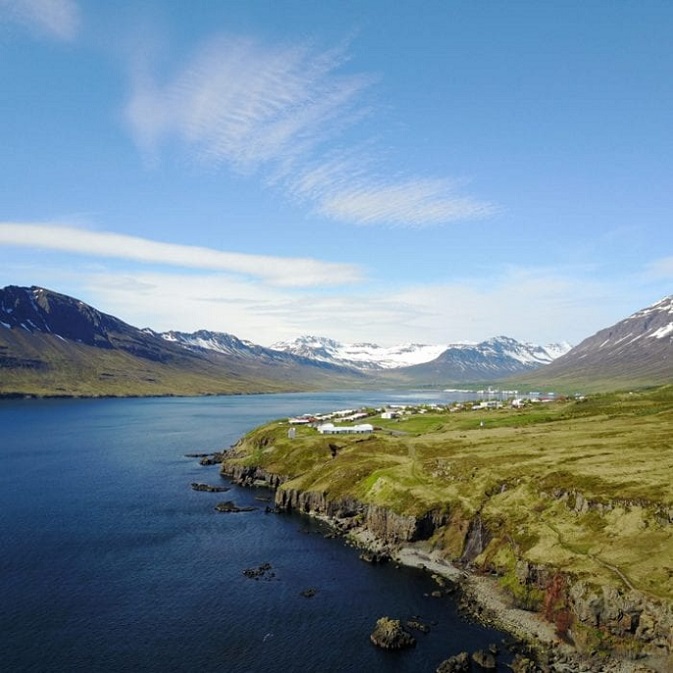
For those seeking a truly immersive experience, Iceland offers various activities to explore its shifting plates. One of the most remarkable experiences is snorkeling or scuba diving in the Silfra Fissure, an extraordinary crack located between the Eurasian and North American plates. The visibility in this underwater wonderland is unparalleled, allowing you to see up to 100 meters ahead. It's a surreal feeling to swim between continents, surrounded by the breathtaking beauty of Iceland.
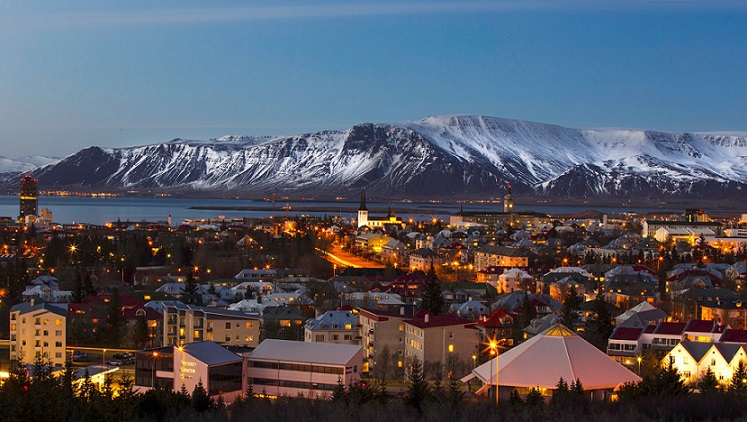
Aside from the thrilling adventure, Iceland is well-known for its dedication to sustainability and environmental conservation. By visiting this remarkable destination, you are actively supporting the country's efforts to protect its natural wonders for future generations. Iceland's commitment to eco-tourism ensures that your adventure is not only exciting but also responsible and sustainable.
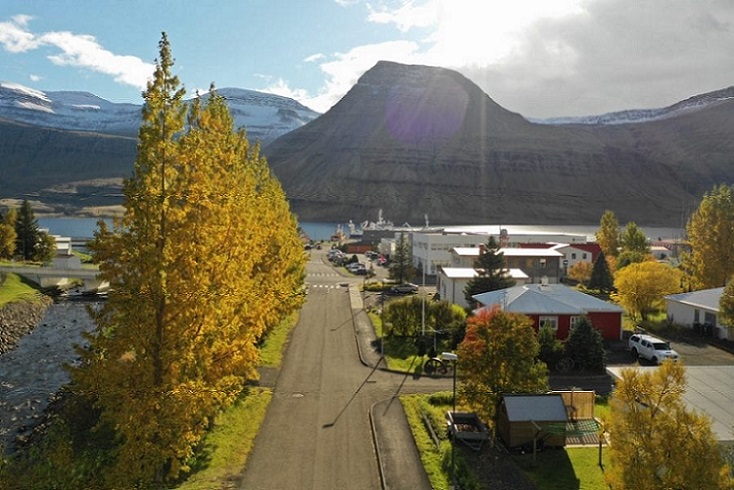
So, if you're ready to embark on an extraordinary journey, start planning your trip to Iceland now. Immerse yourself in the breathtaking magnificence of the country's shifting plates and prepare for an experience that will leave you amazed. Discover the wonders of Iceland's underwater world, where adventure and natural beauty come together. Don't miss this once-in-a-lifetime opportunity to witness the Earth's shifting plates in all their splendor.
Iceland is Europe’s westernmost country, and occupies a strategic location in the North Atlantic, straddling the Mid-Atlantic Ridge, on the edge of the Arctic Circle. One of the coldest countries in the world, it is also one of the world’s most volcanically active hotspots. Iceland is known today for its mix of glaciers, bubbly hot springs, rugged fjords and fiery volcanoes.
Iceland can give you a truly unique diving experience you can’t get anywhere else: diving between two tectonic plates, astride the Mid-Atlantic Ridge, the fault line where two of the Earth’s tectonic plates are drifting apart. It is not only unique, but it is also exclusive – only few people have dared to try the experience.
To get to the diving site, you first have to drive deep into geo-thermal territory and tectonic plate activity. If you’re not yet thrilled enough, you can drive the next day to its glaciers in the south and race snowmobiles. The country is the most sparsely populated in Europe, with just 283,000 people living in an area the size of England or the US state of Kentucky.
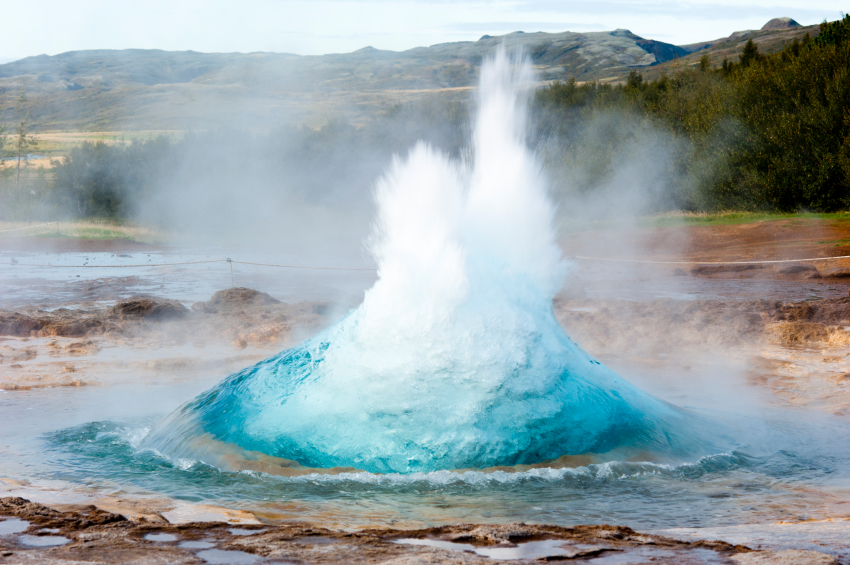 |
 |
Over half of the population lives down in its southwestern corner, around Reykjavik, the small but cosmopolitan capital. The other decent-sized population center is Akureyri, up on the north coast.
What Else to Do All long-distance buses and domestic planes begin their trips from Reykjavik. You can visit Geysir, the original geyser from which all other gushing hot springs get their name, and the spectacular waterfalls at Gullfoss. The country’s only international airport at Keflavik is on the Reykjanes Peninsula, an area teeming with birdlife and whales. Outside Reykjavik and the populated southwestern corner, the wilder side of Iceland meets your eye — wide-open spaces of vivid green fringed with coastlines of red and black volcanic sands set against a backdrop of brooding hills and mountains.

On the west coast, in the towns of Borgarnes and Reykhold and the surrounding countryside, every landscape feature you see will be associated with parts of the Icelandic sagas. The Snaefellsnes Peninsula is the country’s most accessible hiking destination.
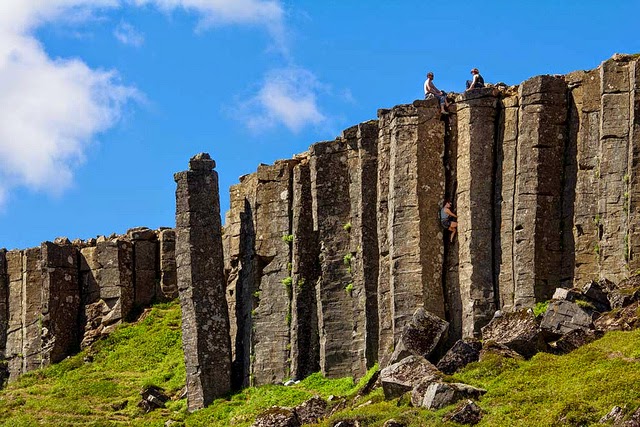
Arguably, Iceland’s most dramatic scenery is in the far northwest, the West Fjords, where you’ll find tiny fishing villages ensconced at the foot of table-top mountains or tucked away in the neck of narrow fjords which protect the houses from ferocious Arctic storms that batter this exposed part of the country. You can relax for a day at Akureyri. From here, it’s easy to go inside the Arctic Circle to the island of Grimsey.
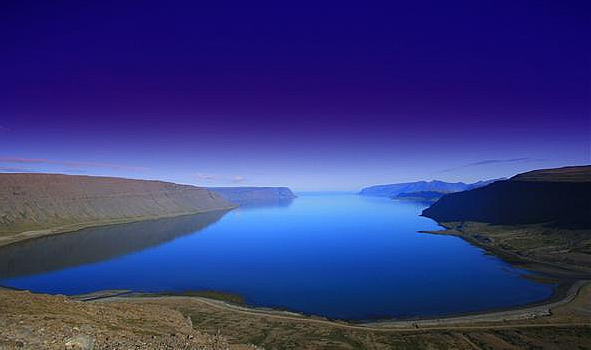 |
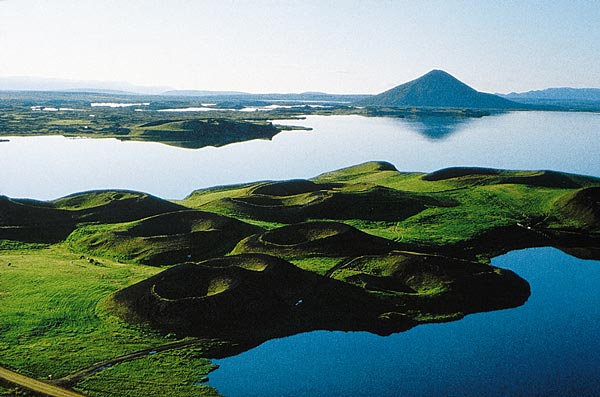 |
The country’s biggest tourist attraction outside Reykjavik is Lake Myvatn, one hour away to the east of Akureyri. Many species of duck and waterfowl nest in this lake, which is surrounded by evidence of volcanic activity, including long-dormant cinder cones and still-steaming lava fields.
North of Myvatn is the small town of Husavik, the best place for summer whale-watching cruises, while just inland to the east you can hike along deep river gorges of the Jokulsargljufur National Park to the awesome Dettifoss, Europe’s most powerful waterfall. Iceland’s most rewarding long-distance hiking route is found near the glacial lagoon, Jokulsarlon.
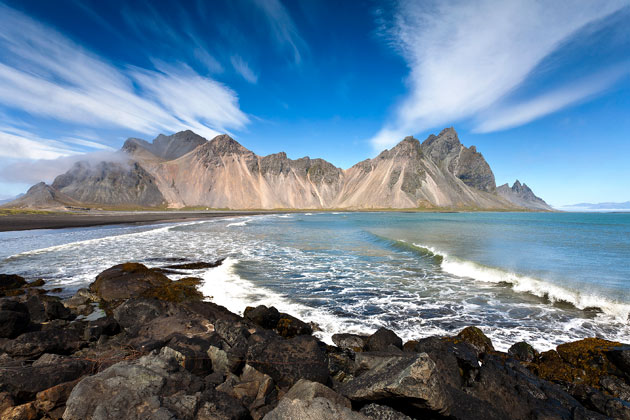
The Porsmork trail is one of the world’s most exhilarating walking paths. In the south coast, you can take a ferry to the Vestmannaeyjar (Westman islands) to survey the world’s largest puffin colonies and have a look at Surtsey, the new island created by volcanic eruptions in the mid-1960s. When to Go Icelandic weather is notoriously unpredictable. In summer, there’s a fair chance of bright and sunny days. Many bus routes through the interior don’t start until late June or early July when the snow finally melts.
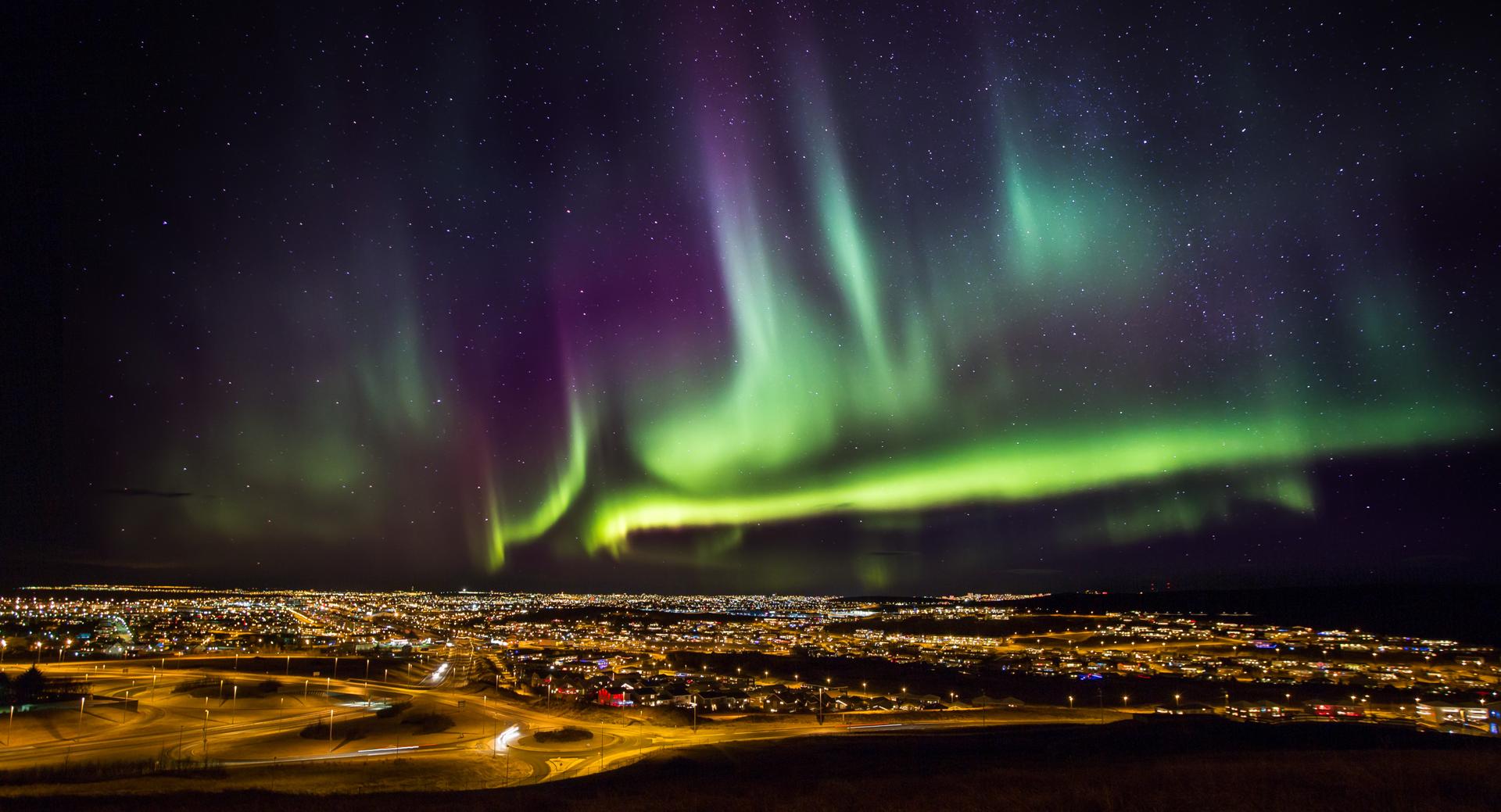
The sun does not fully set during June, and though there’s no true midnight sun, nights are light from mid-May to early August across the country. Between September and January, the Aurora Borealis or Northern Lights can be seen. Hiking and camping are out of the question in winter.
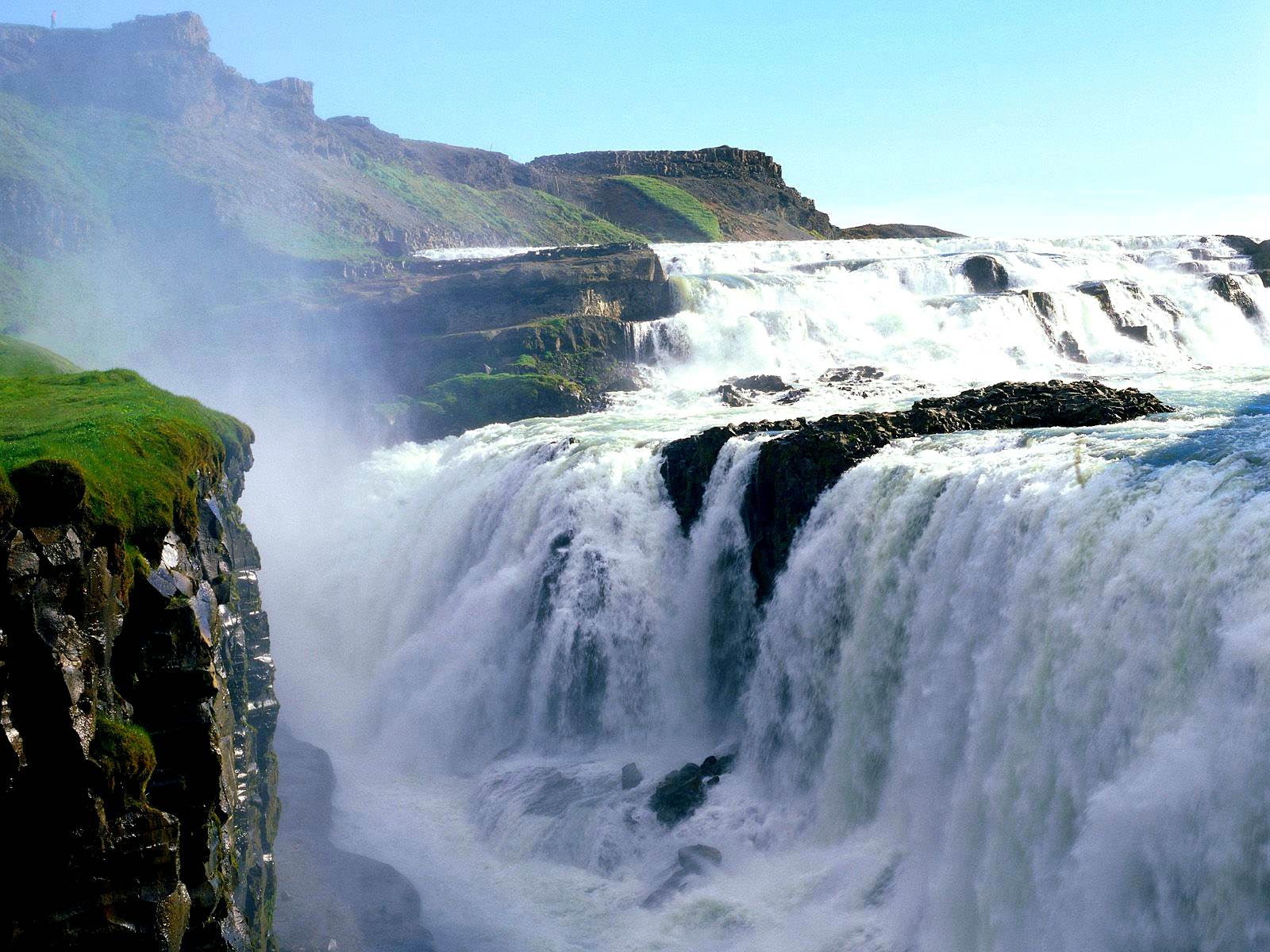
Planning Your Trip Most budget accommodations open only from late May to early September. In winter, there’s little chance of accommodations other than large hotels in Reykjavik and the main towns. Given the long distances involved to reach Iceland, flying is the quickest and cheapest option.
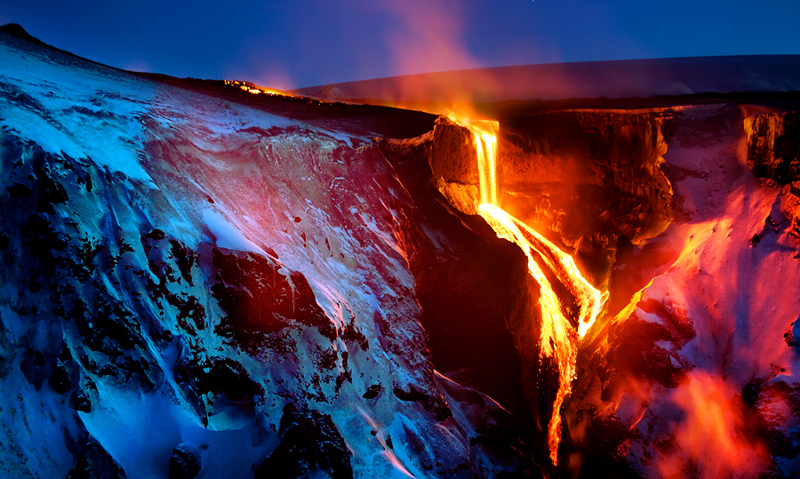
The highest airfares are around June to August when the weather is best. Fares drop September to November and April to June, and you get the best prices during the low season, November to March. The most convenient flights from Europe and Asia go through London; there are direct flights from the US, but Canadian travellers usually need to go via the US.

Tweet
Follow @Charlesfrize


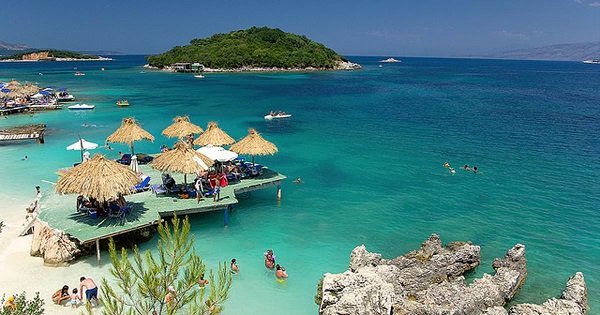
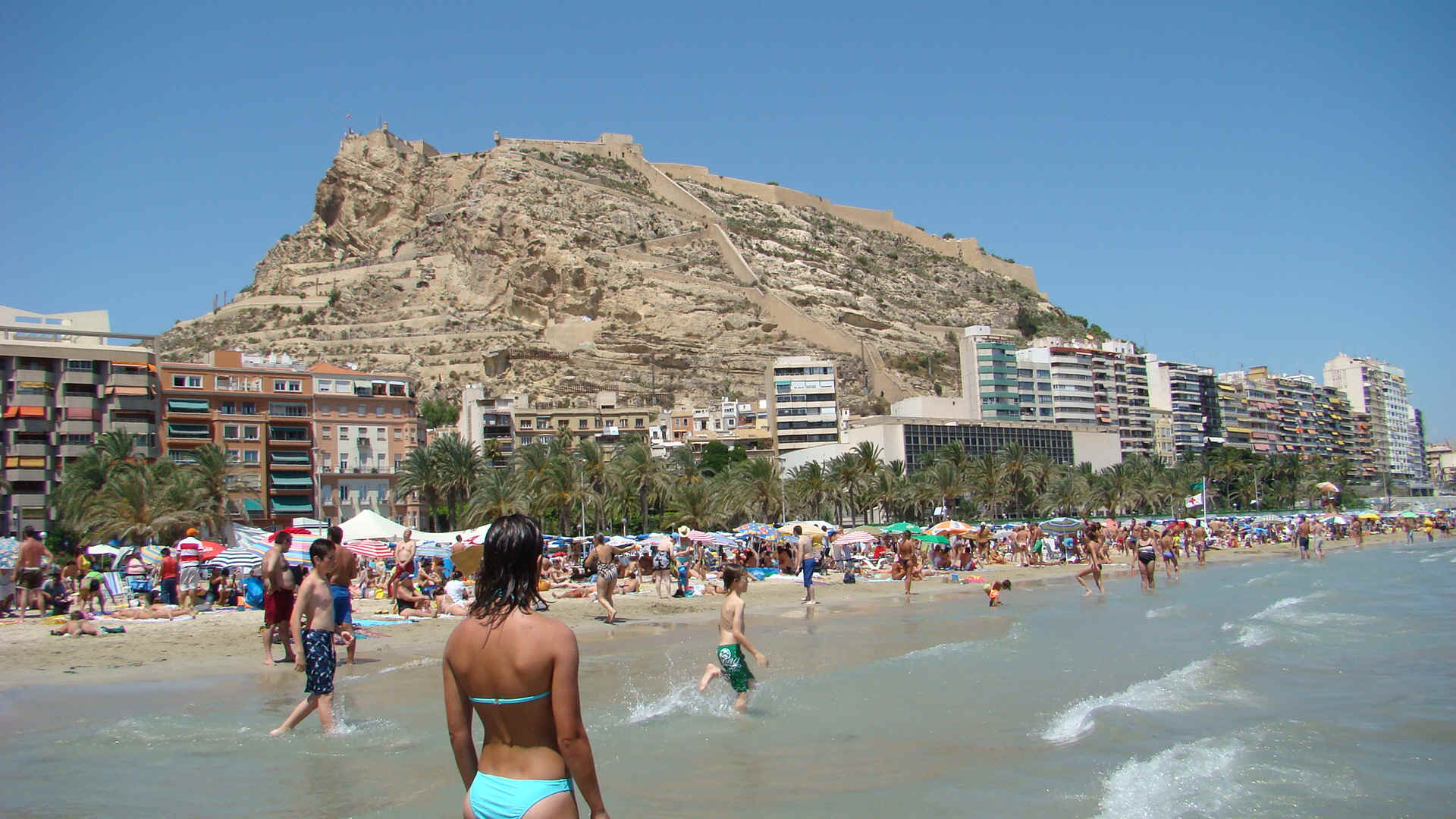






New! Comments
Have your say about what you just read! Leave a comment in the box below.